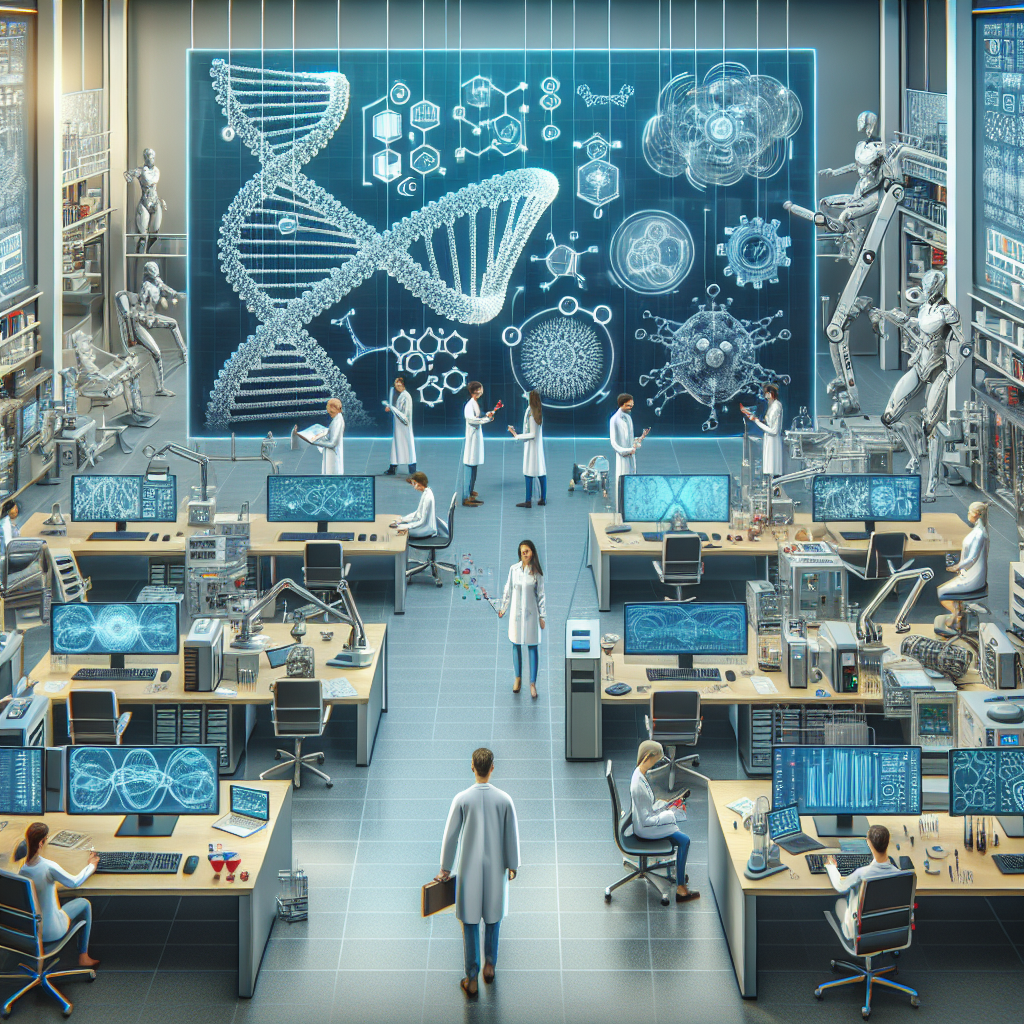Understanding AI in Biotechnology
Hey there! Have you ever wondered how Artificial Intelligence (AI) is revolutionizing the world of biotechnology? It’s a fascinating intersection of two groundbreaking fields. Let’s dive into some common questions about AI in biotech, and I’m here to make it all easy to understand!
What is AI in Biotechnology?
Artificial Intelligence in biotechnology involves using sophisticated algorithms and machines to analyze complex biological data. By mimicking human intelligence, AI helps in understanding patterns and making predictions that would be incredibly challenging and time-consuming for humans to achieve on their own.
How is AI Used in Drug Discovery?
Great question! Drug discovery is one of the most exciting applications. Here are a few ways AI is transforming this area:
- Predicting Drug Efficacy: AI can analyze biological data to predict how effective a drug might be, which speeds up the process of finding new medications.
- Identifying Potential Compounds: It can screen vast libraries of chemical compounds quickly to identify promising candidates for further research.
- Optimizing Clinical Trials: AI helps in designing better clinical trials and even predicting outcomes, which can save both time and resources.
Can AI Help in Personalized Medicine?
Absolutely! Personalized medicine tailors treatment plans to individual patients based on their unique genetic makeup. Here’s how AI contributes:
- Analyzing Genetic Data: AI can process extensive genetic information to identify the best treatment options for specific patients.
- Predicting Disease Risk: AI algorithms assess genetic predispositions to predict the likelihood of developing certain diseases, enabling early intervention.
Is AI Used in Genomics Research?
Yes, it is! AI is incredibly valuable in genomics, which is the study of genomes. Let’s break it down:
- DNA Sequencing: AI helps in decoding extensive DNA sequences, making the analysis faster and more accurate.
- Identifying Genetic Variations: This technology can pinpoint genetic variations that may lead to diseases, opening avenues for new treatments.
What are the Challenges of Implementing AI in Biotechnology?
While the possibilities are thrilling, there are a few challenges too:
- Data Quality: AI requires high-quality data. Inaccurate or incomplete data can lead to erroneous predictions.
- Interpreting Results: Sometimes, the outputs from AI models are complex and hard to interpret, necessitating expertise to make sense of them.
- Ethical Concerns: Ensuring data privacy and preventing biases in AI models are critical ethical considerations that must be addressed.
The Future of AI in Biotechnology
Looking ahead, the future of AI in biotech is bright and brimming with potential. Innovations like AI-driven diagnostics, advanced medical imaging, and more personalized medicine approaches are just the beginning. As we continue to refine AI technologies and address existing challenges, the possibilities are virtually limitless.
So, there you have it—an exciting glimpse into how AI is transforming biotechnology. It’s a thrilling time to be involved in these fields, and who knows? The next big breakthrough could be just around the corner!
